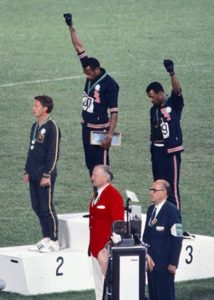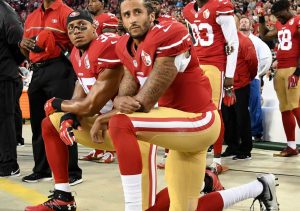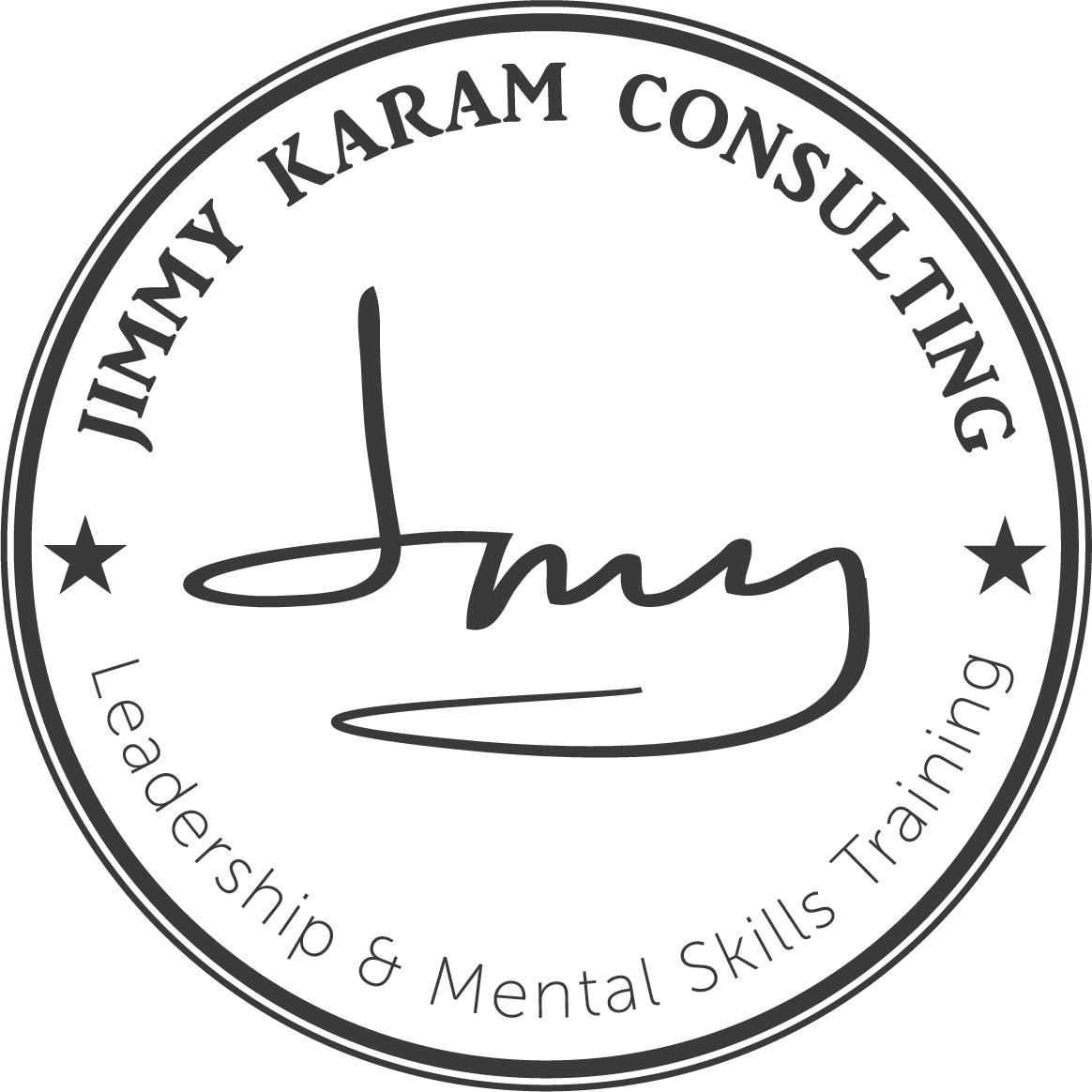Two-time Olympic Gold Medalist with the U.S. Women’s Soccer team, Angela Hucles, was the 2019 Association for Applied Sport Psychology Conference Day 3 Keynote Speaker. I found her message of using Sports as an advocacy tool both enlightening and engaging.
Angela defined “Sport” in a number of ways, a few notable quotes are highlighted below:
“Sport
…allows unspoken communication.
…translates every language.
…helps us find strength through vulnerability.
…empowers individuals and unifies groups.
…provides a platform to make topics relevant.”
The key takeaway was to be awake and advocate now. Create a safe space to start the conversation and encourage athletes to use their platform and be heard.
 This concept is not revolutionary, athletes have advocated through sports for decades. One famous example being the Black Power Salute during the 1968 Olympics in Mexico City. Two black athletes, Tommie Smith and John Carlos, each raised a black-gloved fist during the playing of the US national anthem. The gesture was meant to capture a multitude of human rights issues, ranging from education to slavery.
This concept is not revolutionary, athletes have advocated through sports for decades. One famous example being the Black Power Salute during the 1968 Olympics in Mexico City. Two black athletes, Tommie Smith and John Carlos, each raised a black-gloved fist during the playing of the US national anthem. The gesture was meant to capture a multitude of human rights issues, ranging from education to slavery.
This minor act became an iconic moment in time not only for human rights activists, but athletes all over the world, who witnessed the power of a simple message conveyed using a sports platform.
The tradition continues today with athletes like the U.S. Women’s National Soccer team joining together to protest unequal pay. Utilizing the momentum of their World Cup win, the women filed suit and have now been granted class status to fight the inequality for all players.
I taught Sports Economics at the United States Naval Academy (yes, the subject was as cool as it sounds), I examined three sports with a history of athlete exploitation who used their athlete status to affect change.
Minor League Baseball (MiLB) – The average salary for a minor league baseball player ranges from $6,000 to $15,000 as of 2018. Meanwhile, according to the U.S. Department of Health and Human Services, the poverty line in 2019 is $12,490. Players may live below the poverty line while competing against nearly 300 teammates for the chance at one of only 25 active roster spots on their major league team. As recent as this past August, an Appeals Court expanded a MiLB class-action wage lawsuit against MLB to include players in Arizona and Florida. The lawsuit originated in California and was initially filed in 2014.
NFL Cheerleaders – In addition to below average pay, NFL Cheerleaders are subject to unrealistic appearance standards that many have argued cross over to sexual harassment. Former Oakland Raiderette, Lacy Fields, successfully sued the Raiders in 2014 over such treatment. NFL Cheerleaders work on average 30-40 hours per week in preparation for game where they will be paid anywhere from $75 to $125. Yes, per game. The documentary, A Woman’s Work: The NFL’s Cheerleader Problem, released this past April, is a great resource for more information on this topic.
Collegiate Student-Athletes –Ramogi Huma has turned the tables on this mindset as executive director of the National Collegiate Players Association (NCPA). Huma’s years of hard work have culminated in a significant milestone with the passing of The Fair Pay to Play Act (SB 206). This bill implements a new law beginning in 2023 which allows college athletes to hire sports agents and receive compensation for use of their name, image, and likeness. The NCAA has announced their support for this ruling as well.
All four cases highlight the various mistreatment of athletes and the strides they are taking to become advocates for change. There is still work to be done, but these examples highlight Angela’s statement: “Sport provides a platform to make topics relevant.”
 Possibly the most famous and highly controversial case of sport advocacy is Colin Kaepernick. His decision to take a knee during the National Anthem to protest against police brutality and racism was met with praise and scorn. People argued for his bravery and against his disrespect.
Possibly the most famous and highly controversial case of sport advocacy is Colin Kaepernick. His decision to take a knee during the National Anthem to protest against police brutality and racism was met with praise and scorn. People argued for his bravery and against his disrespect.
As a high school football coach during this time, I witnessed firsthand the range of emotions tied to his actions. My primarily white community seemed evenly split on Kaepernick’s protest. For me, the best outcome of this event was the eye-opening experience for students and staff. The school district chose to allow players to mirror Kaepernick and take a knee without retribution. High school athletes had the option to participate in a form of sport advocacy, likely for the first time.
Personally, the National Anthem protests struck home and were a learning experience for me as a coach and mentor to these athletes. As a Veteran of the US Navy, I felt taking a knee violated my personal life-long vow to the Oath of Office. As a coach, I wanted to support my athletes and promote their choice to use sports as a platform for advocacy. I reconciled these philosophies by realizing that part of my Oath was to support and defend the Constitution, which includes the right to peacefully protest our government.
Angela Hucles message only reinforced my decision to always support and encourage athletes to use their position to advocate for those who need a voice. No person should ever be shunned for speaking their truth, especially if they are an advocate for human rights and decency. It is imperative to continue the conversations with athletes and create a safe space that encourages them to explore their identity and convictions. It is imperative that we give them a voice at the table and continue to stress the importance of Sport in the Age of Advocacy.
